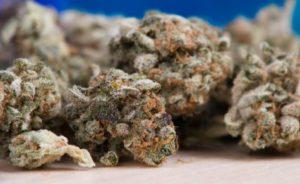WATERLOO, Ontario — Weed may be recreationally legal in eight states, but that could lead to poorer outcomes for high schoolers who smoke marijuana, a new study finds.
Researchers at the University of Waterloo in Canada examined a sample of high school students from each grade who used marijuana, hoping to find a link between the drug’s use and educational motivation.

For students who consumed weed on a daily basis, their desire to go to college, as opposed to simply completing— or even dropping out of— high school, was about 50 percent lower than it had been prior to them making their consumption as habitual, the study found.
“We found that the more frequently students started using the drug, the greater their risk of poor school performance and engagement,” emphasizes lead researcher Karen Patte in a university press release.
Previous research has shown that the average individual’s brain doesn’t fully mature until they are in their 20s, and smoking marijuana during one’s adolescence may lead to reduced neural connectivity in regions responsible for memory, learning, and inhibitions even later in life.
“The findings support the importance of preventing and delaying the initiation of marijuana use among adolescents,” says Scott Leatherdale, a professor at the University of Waterloo.
The researchers, perhaps surprisingly, argue that consuming alcohol in lieu of marijuana may more conducive to academic success for high schoolers, although “all substances present risks to health and well-being.”

No comments:
Post a Comment